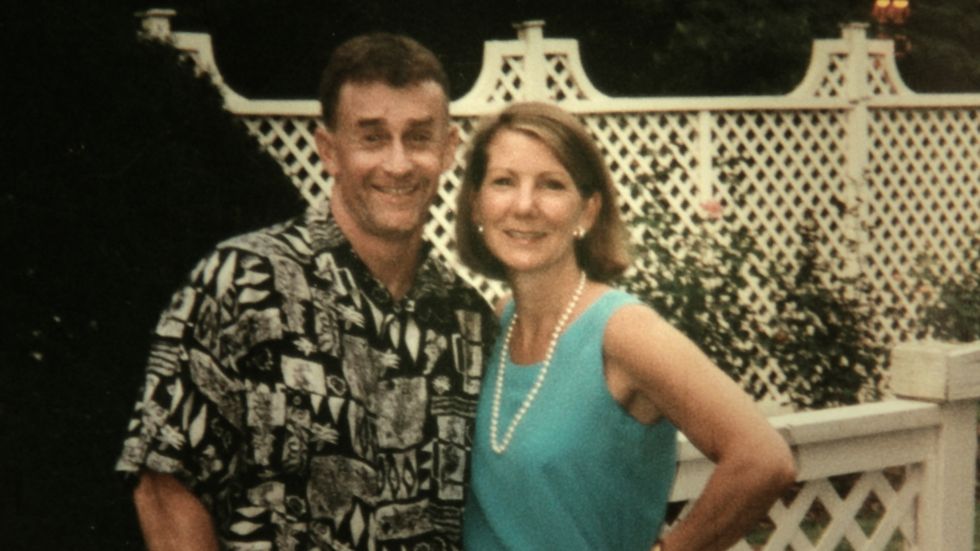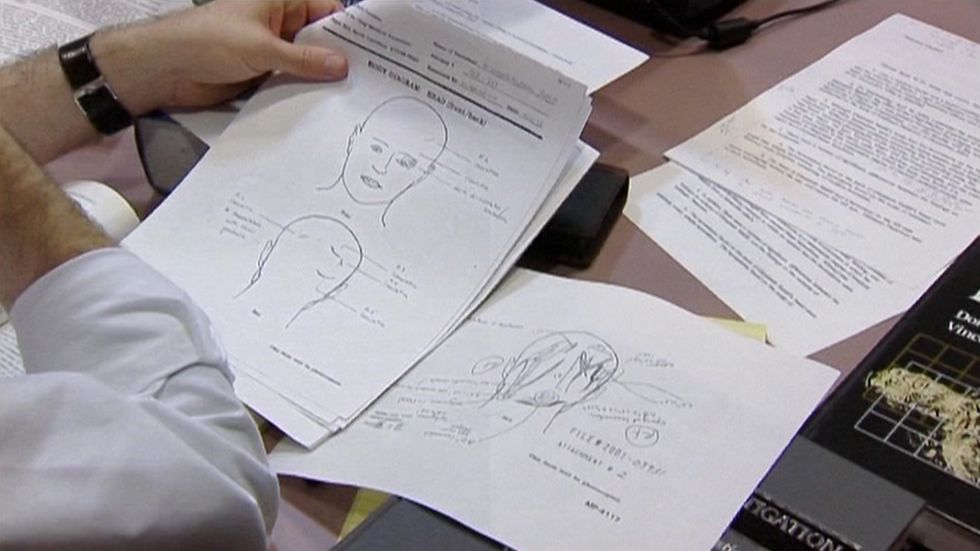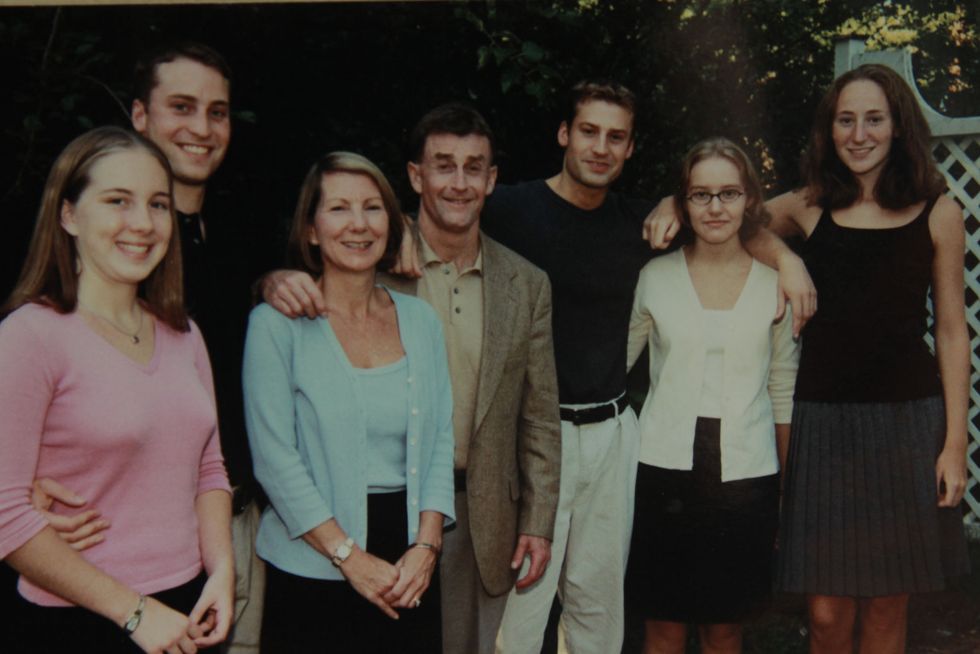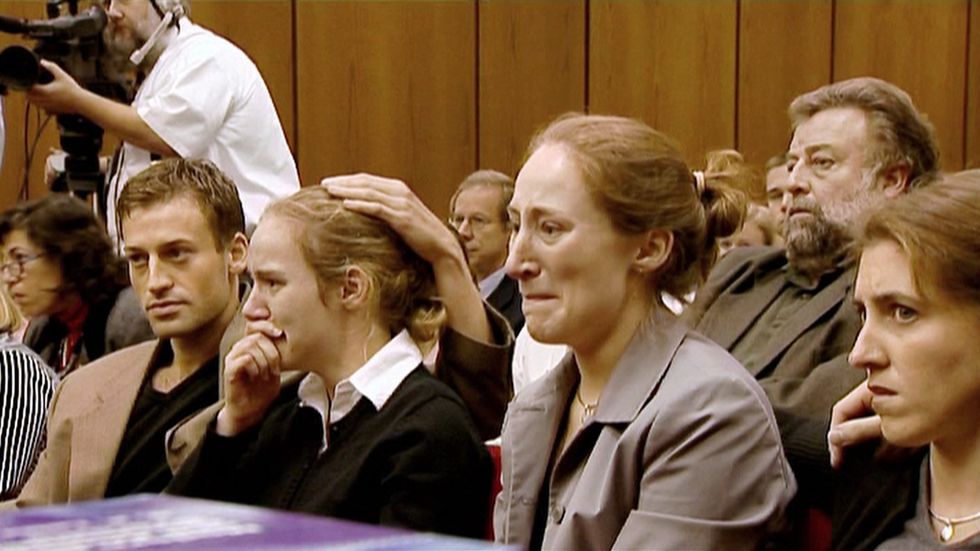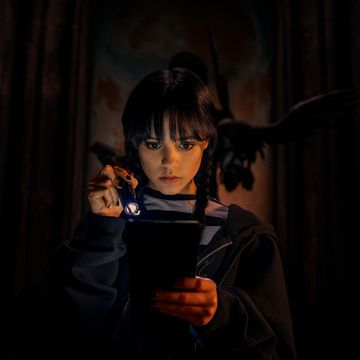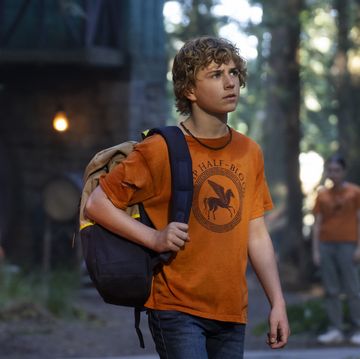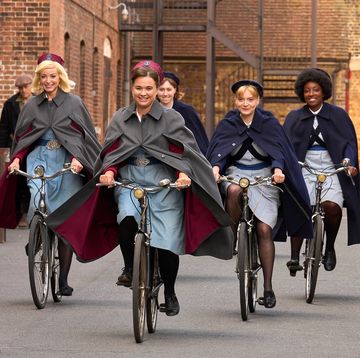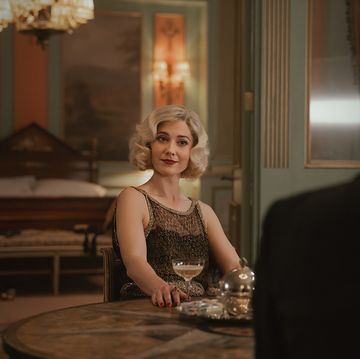HBO Max's The Staircase spotlights a case that true crime fans have been obsessing over for the better part of two decades. On a November evening in 2001, novelist Michael Peterson found his wife, Kathleen, dead at the bottom of a staircase in their North Carolina home— at least, that's Peterson's story. According to prosecutors, Peterson is the one who put her there.
After a lengthy and often bizarre trial which was chronicled in the 2004 documentary series The Staircase, Peterson was found guilty of Kathleen's murder, partially on the basis of blood spatter evidence that was later found to be faulty, and he was granted an new trial in which he entered an Alford plea (more on that below). Peterson has always maintained his innocence, and there were a number of ambiguities that hung over the case, along with some alternative theories which gained traction over the years.
Here's a chronological timeline of the events of the case.
November 25, 1985
43-year-old Elizabeth Ratliff was found dead in her home in Graefenhausen, Germany. She was found in the early hours of the morning by her nanny, lying at the bottom of a staircase which was splattered with blood.
At the time, Ratliff’s death was believed to be from natural causes. An autopsy concluded that she died from an intra-cerebral hemorrhage, which had been caused by a preexisting blood disorder known as Von Willebrand's disease. The coroner ruled that the hemorrhage had caused Ratliff to collapse, fall down the stairs and hit her head, which explained the amount of blood found at the scene.
Ratliff was friends with Michael Peterson, a 45-year-old American writer who lived in the area with his then-wife, Patricia. (They would later separate and divorce.) Peterson was the last known person to see Ratliff alive but he wasn’t suspected of any wrongdoing.
Shortly after Ratliff’s death, Peterson adopted her two daughters, Margaret and Martha Ratliff. He and Patricia already had two sons, Todd and Clayton Peterson.
1997
Peterson married Kathleen Atwater, a successful executive at telecommunications company Nortel Networks. Kathleen’s daughter, Caitlin, joined the couple’s blended family.
According to those who knew them, Peterson and Kathleen had a blissfully happy marriage. One friend told CBS News that they were "an extraordinary couple... they had all the appearances and trappings of happiness. Totally compatible with one another."
December 9, 2001
At 2.40 a.m., Peterson called 911 and told the dispatcher that he’d just come into his house to find Kathleen unconscious at the bottom of a staircase. He said that his 48-year-old wife had fallen down "fifteen, twenty, I don't know" stairs. During this initial call, Peterson said that Kathleen was still breathing.After the first call was disconnected, Peterson called 911 again. This time, he said that Kathleen wasn’t breathing.
When the authorities reported to the scene moments later, they found Kathleen’s body lying where Peterson had described, surrounded by a large amount of blood. Peterson told ABC News that he and Kathleen had watched a movie together that evening, then sat together by the pool for several hours drinking wine. Kathleen had gone to bed earlier than him, and when he’d eventually come inside, he’d found her.
Peterson said that Kathleen must have slipped and fallen to her death on the stairs, under the influence of alcohol and possibly Valium. A medical examiner who examined her body at the scene concurred that the death was probably an accident. But that narrative soon began to shift. During a postmortem examination, the coroner concluded that Kathleen had died from injuries that were consistent with blunt force trauma, not an accidental fall.
December 20, 2001
Michael Peterson was indicted for Kathleen’s murder. He surrenders himself to the police shortly after, and is taken into custody.
"Kathleen was my life," Peterson said in a public statement at the time. "I've whispered her name in my heart a thousand times. She is there. And I can't stop crying. I would never have done anything to hurt her."
All of Peterson’s children initially stood by him and proclaimed his innocence. But Caitlin— Kathleen’s only biological child—soon broke away from the rest of the family, and aligned herself with the prosecution, as did Kathleen’s sister Candace Zamperini.
January 14, 2002
A little less than a month after his indictment, Peterson posted bail, and was released from jail to await trial.
February 2002
The Staircase begins filming. Directed by French filmmaker Jean-Xavier de Lestrade, the documentary series follows the case beat-by-beat, from the perspective of Peterson, his family, and his defense team, led by attorney David Rudolf.
The show was initially released on the French network Canal+, and later moved to Netflix. The streaming platform also ordered three subsequent episodes, which launched in 2018.
October 29, 2002
Caitlin, Kathleen’s daughter, filed a wrongful death lawsuit against Peterson. She was ultimately awarded a $25 million judgment in the case.
June 2003
In light of the similarities between Elizabeth Ratliff’s death and Kathleen’s, German authorities reopened Elizabeth’s case. Her body was exhumed after 17 years, and a new autopsy was performed.
That autopsy report found that Ratliff died from blunt force trauma to the head, likely as a result of a homicidal attack. Prosecutors in Darmstadt, Germany, confirmed that they were working with US authorities on a linked investigation.
July 1, 2003
Michael Peterson’s trial begins in Durham, North Carolina. The prosecution argues that Peterson murdered Kathleen using a blow poke in the family home. Meanwhile, the defense states that Kathleen died in a freak accident—specifically, that she slipped on the stairs, hit her head, then slipped in her own blood as she tried to get to her feet, causing more severe head injuries.
During the trial, the prosecution brings former male escort Brent Wolgamott to the stand. Wolgamott testifies that Peterson paid him for sex on multiple occasions, confirming previous reports that Peterson was bisexual and had sex outside of his marriage. Peterson maintained that Kathleen knew he was bisexual, and accepted his extramarital affairs.
October 10, 2003
After four days of deliberation, the jury found Michael Peterson guilty of first-degree murder. He was sentenced to life in prison without the possibility of parole.
August 21, 2008
The owl theory takes flight. Attorney Larry Pollard, a friend of Peterson's, holds a news conference during which he publicly presents evidence supporting the idea that a wild owl could have attacked Kathleen. Pollard notes that microscopic owl feathers were found in Kathleen's hair, and that an owl's talons could have caused the lacerations that were found on her scalp.
September 14, 2011
Peterson is granted a new trial by a judge in North Carolina, after one of the key witnesses for the prosecution was found to be suspect. Duane Deaver, who gave damning testimony regarding the blood spatter patterns at the crime scene, was found to have misled both the judge and the jury in Peterson's case. On this basis, Peterson was released from prison, after serving almost a decade behind bars. He was released on on $300,000 bail, and placed under house arrest with an ankle monitor.
February 24, 2017
Peterson entered an Alford plea to a reduced charge of manslaughter. An Alford plea allows a defendant to maintain his or her innocence, while acknowledging that prosecutors have enough evidence to convict them. As a result of the plea, he was sentenced to time served, and officially became a free man. This latter stage of his case was chronicled in the final three episodes of The Staircase, which were produced and distributed on Netflix.

Emma Dibdin is a freelance writer based in Los Angeles who writes about culture, mental health, and true crime. She loves owls, hates cilantro, and can find the queer subtext in literally anything.

